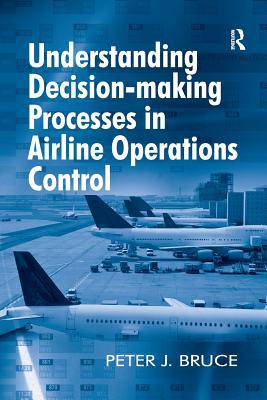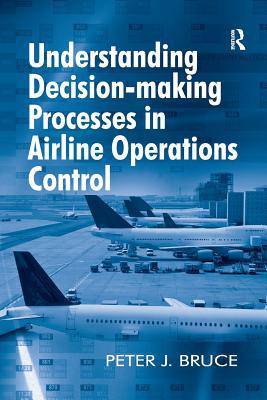
Je cadeautjes zeker op tijd in huis hebben voor de feestdagen? Kom langs in onze winkels en vind het perfecte geschenk!
- Afhalen na 1 uur in een winkel met voorraad
- Gratis thuislevering in België vanaf € 30
- Ruim aanbod met 7 miljoen producten
Je cadeautjes zeker op tijd in huis hebben voor de feestdagen? Kom langs in onze winkels en vind het perfecte geschenk!
- Afhalen na 1 uur in een winkel met voorraad
- Gratis thuislevering in België vanaf € 30
- Ruim aanbod met 7 miljoen producten
Zoeken
Understanding Decision-Making Processes in Airline Operations Control
Peter J Bruce
Paperback | Engels
€ 111,45
+ 222 punten
Uitvoering
Omschrijving
Previous studies conducted within the aviation industry have examined a multitude of crucial aspects such as policy, airline service quality, and revenue management. An extensive body of literature has also recognised the importance of decision-making in aviation, with the focus predominantly on pilots and air traffic controllers. Understanding Decision-Making Processes in Airline Operations Control focuses instead on an area largely overlooked: an airline's Operations Control Centre (OCC). This serves as the nerve centre of the airline and is responsible for decision-making with respect to operational control of an airline's daily schedules. The environment within an OCC is extremely intense and a key role of controllers is to make decisions that facilitate the airline's recovery from frequent, highly complex, and often multiple disruptions. As such, decision-making in this domain is critical to minimise the operational, commercial and financial impact resulting from disruptions. The book examines many aspects of individual decision-making in airline operations, and addresses the deficiencies found by presenting to the reader an examination of the relationships among situation awareness, information completeness, experience, expertise, decision considerations and decision alternatives in OCCs. The text utilises a multiple case study approach and proposes a number of relevant and important implications for OCC management. Practical outcomes highlight the need for enhancing training programs enabling existing controllers to readily identify and classify elements of situation awareness and decision considerations as a means of improving the decision-making process. They also draw attention to the need for airline OCCs to understand the extent to which industry experience and expertise of controllers is important in the selection of future staff.
Specificaties
Betrokkenen
- Auteur(s):
- Uitgeverij:
Inhoud
- Aantal bladzijden:
- 208
- Taal:
- Engels
Eigenschappen
- Productcode (EAN):
- 9781138247925
- Verschijningsdatum:
- 9/09/2016
- Uitvoering:
- Paperback
- Formaat:
- Trade paperback (VS)
- Afmetingen:
- 156 mm x 234 mm
- Gewicht:
- 299 g

Alleen bij Standaard Boekhandel
+ 222 punten op je klantenkaart van Standaard Boekhandel
Beoordelingen
We publiceren alleen reviews die voldoen aan de voorwaarden voor reviews. Bekijk onze voorwaarden voor reviews.









